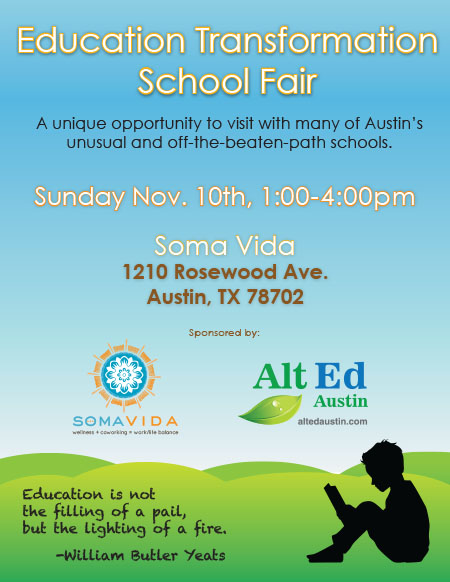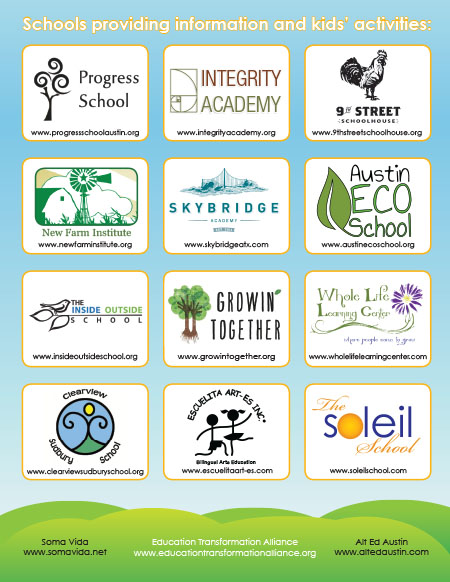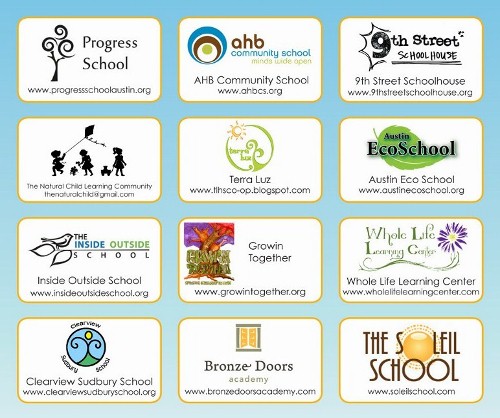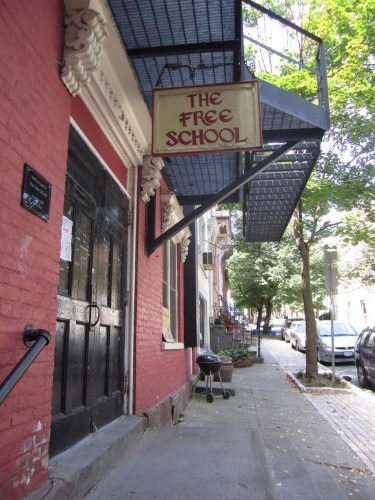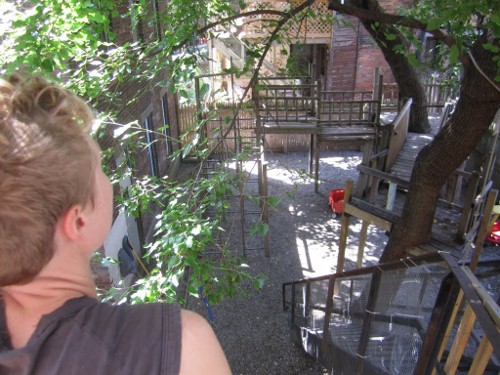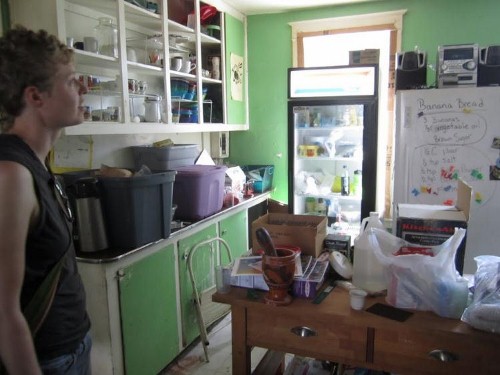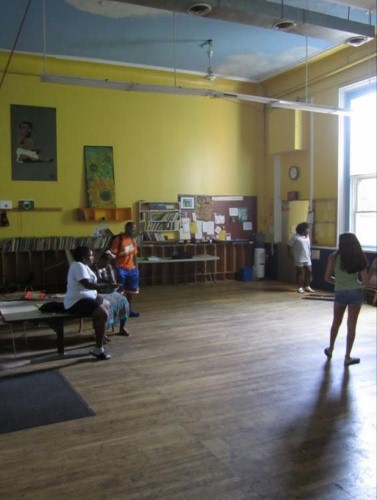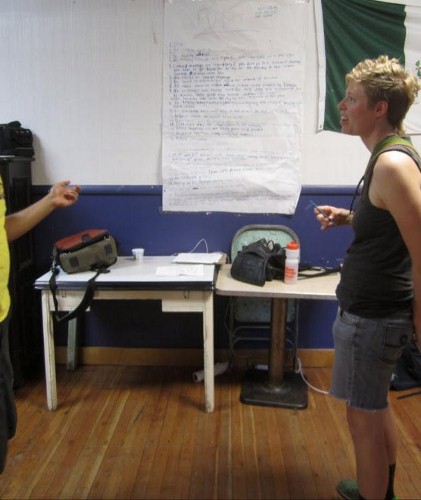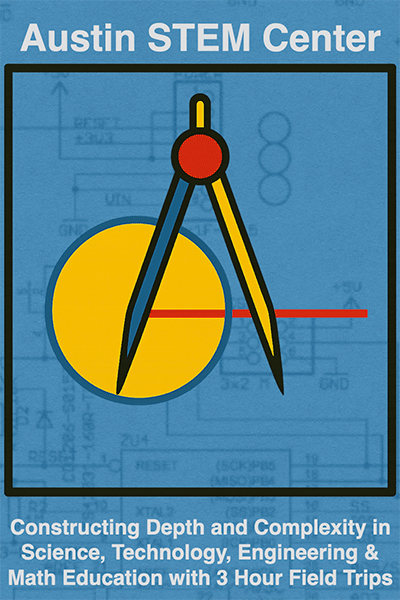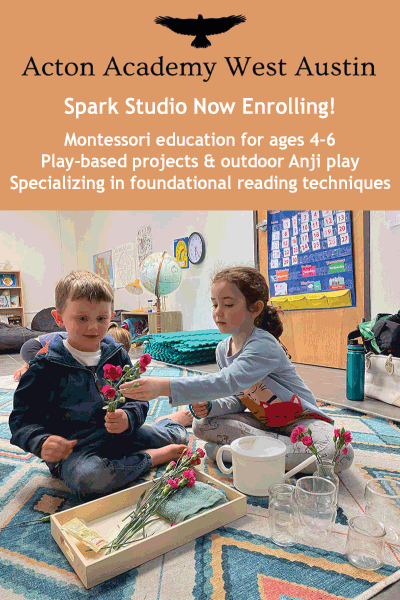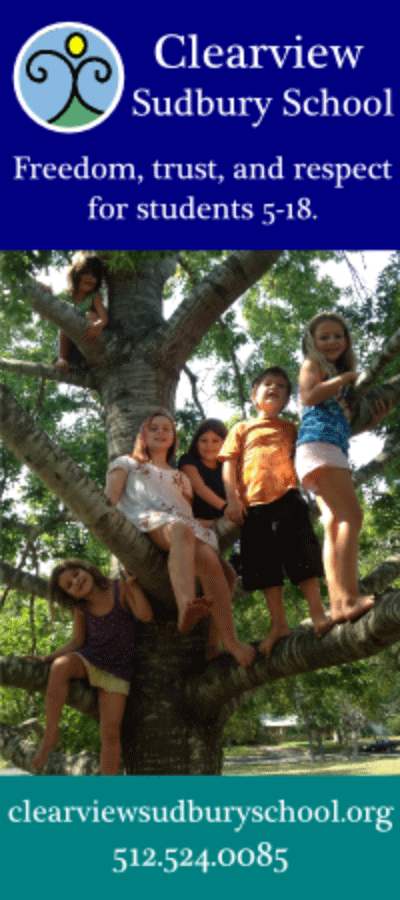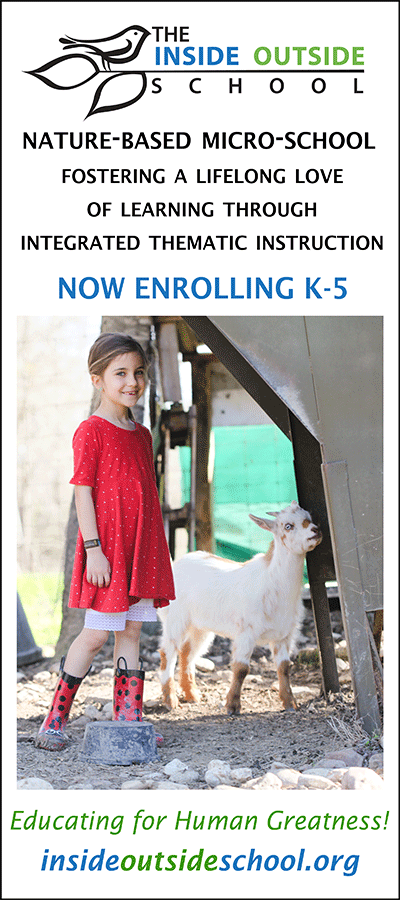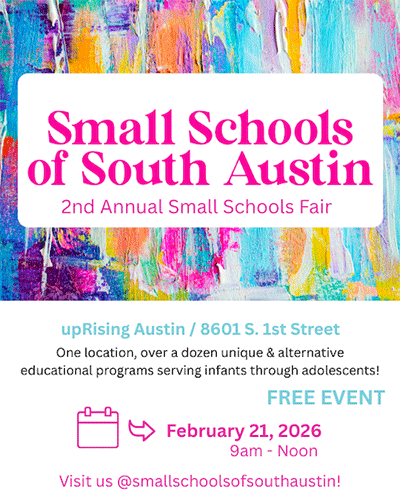Transforming education: How a grassroots movement is changing the world
/Michael Carberry is the founder and director of the Whole Life Learning Center in Austin and a cofounder of the Education Transformation Alliance. He is also a writer, speaker, and educational consultant. Michael is currently completing an M.A. in Holistic Education from the SelfDesign Graduate Institute. Here Michael sums up his views on the current state of education and what truly meaningful reform looks like. At the end of his guest post, you can watch a lovely new video about his revolutionary (and expanding) school.
I believe in standardizing automobiles. I do not believe in standardizing human beings. Standardization is a great peril which threatens American culture.
—Albert Einstein
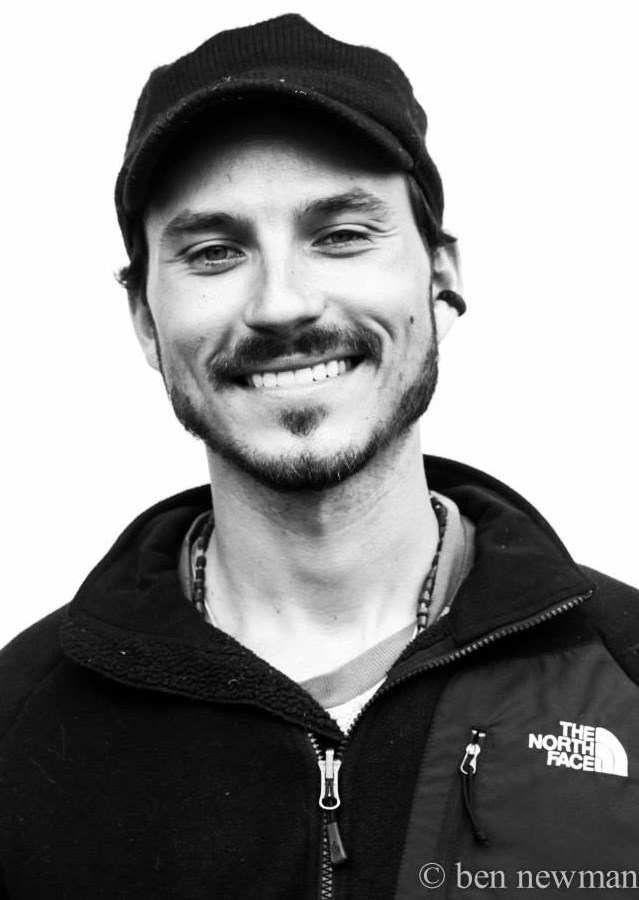 It seems like common sense today that a highly standardized education system will only hinder the creativity of both teachers and students, ultimately damaging their ability to teach and truly learn. Students are often lost and disenchanted within this vast, competitive system. I propose that the highest aim of education ought to be supporting every student in discovering and cultivating his or her unique gifts, while promoting a lifelong love of learning.
It seems like common sense today that a highly standardized education system will only hinder the creativity of both teachers and students, ultimately damaging their ability to teach and truly learn. Students are often lost and disenchanted within this vast, competitive system. I propose that the highest aim of education ought to be supporting every student in discovering and cultivating his or her unique gifts, while promoting a lifelong love of learning.
Rather than stressing and obsessing over grades and test performance, we educators and leaders in the alt ed movement shift the focus to guiding and mentoring youth toward living more fulfilled, empowered, and joyous lives while promoting health and wellness, ecological awareness, and social justice. Author Ron Miller describes education as “the primary vehicle for cultural transformation.” This is why it is so important to take a hard look at our traditional education system while researching the myriad alternatives that are sprouting up.
When choosing a school for your child, or deciding on an educational philosophy that you are aligned with, you have to ask the questions: What is the purpose of education? What do I want for myself and my child? And what kind of future do I want to contribute to?
A 2012 Gallup poll demonstrated that the longer students stay in school, the less engaged they become with their own education. The Gallup Student Poll surveyed nearly 500,000 students in grades 5 through 12 from more than 1,700 public schools in 37 states. It found that about 80 percent of elementary students who participated in the poll were engaged with their education, measured in terms of “involvement in and enthusiasm for school.” By middle school it fell to about 60 percent, and by high school, only 40 percent of students would be considered engaged.
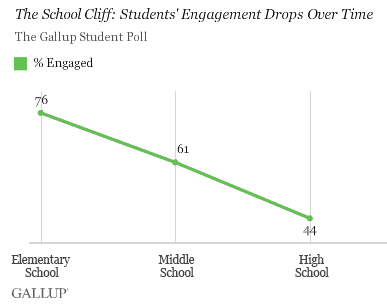
It’s no secret: public schools (and traditional private schools too) are focusing on the numbers and forgetting about the students. The most-watched TED Talk ever is “How Schools Kill Creativity” by Sir Ken Robinson. He makes the case that over the past hundred years our education system has basically emulated the industrial, assembly line model. What we need to return to, then, is a more organic model that understands human unfolding and learning as a natural process that requires diverse environments, specialized attention, and unique inputs in order to nourish optimal growth and well-being.
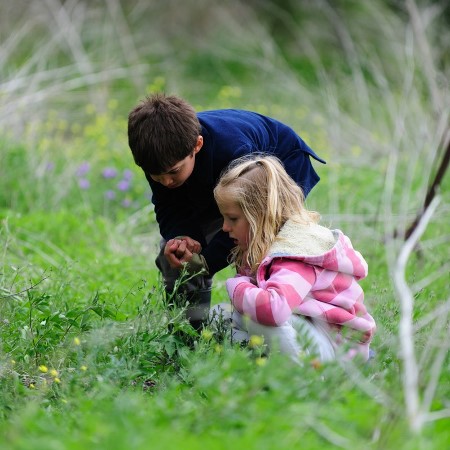 A glimpse of organic learning at the Whole Life Learning Center in Austin, Texas
A glimpse of organic learning at the Whole Life Learning Center in Austin, Texas
John Taylor Gatto is another outspoken advocate of education revolution. Gatto was named New York City Teacher of the Year in 1989, 1990, and 1991, and New York State Teacher of the Year in 1991. He shocked administrators upon his acceptance of this award by lambasting the public school system in a speech that he later expanded into his book, Dumbing Us Down: The Hidden Curriculum of Compulsory Schooling. Gatto asserts that schools confuse students by presenting an incoherent array of information that the child needs to memorize in order to compete in school. He explains that rather than teaching kids to be independent, creative, confident individuals, schools are teaching (through built-in contexts) emotional and intellectual dependence and indifference.
Despite these clear arguments for radical reform in our public education system, pervasive and corrosive programs like No Child Left Behind continue to stifle school districts throughout the country by attaching funding to test performance. The good news is that there is a growing movement of families and educators turning to a rapidly expanding array of alternatives. The increasing drop-out rates and the steep rise in the number of medicated students are just a couple of examples of the fractured system they are leaving behind.
In the past, alternatives were fewer and farther between. Awareness around these alternatives was quite limited; perhaps people had heard through mainstream sources about Montessori or Waldorf education, but they probably had a very limited understanding of what those were or why they might be better choices for their families than the public school system.
Today the education revolution is in full swing, and it’s not led by any one model of education to universally replace public schools. It’s a movement comprising homeschoolers, unschoolers, co-ops, small independent schools, charter schools, families, and educators choosing options that they’re aligned with—options that see their children and students as more than cogs in a machine being prepared for the workforce, options that recognize that everyone learns differently and honor and support each child’s unique strengths and weaknesses, that recognize the importance of social-emotional learning along with academic study, options that facilitate a connection to nature and promote ecological awareness, social justice, and global citizenship.
 Happy learners at the Whole Life Learning Center
Happy learners at the Whole Life Learning Center
An invaluable resource in this movement is the Alternative Education Resource Organization (AERO), which hosts an annual conference and acts as an international hub for all things alt ed. In Canada, a great example of government-funded measures to support homeschooling efforts can be seen in the organization SelfDesign, which supports parents financially and with a “Learning Consultant” who helps them create and follow through on an individualized learning plan for their child.
One of the cities at the forefront of this education revolution in the United States is Austin, Texas. Yes, that’s right, the home of the President who brought No Child Left Behind to the nation is also one of the most supportive states when it comes to homeschooling. Austin also happens to be a progressive oasis in a conservative state, so it has drawn a multitude of educational options for the many families moving to Austin every day. Beyond the typical alternative options of the Montessori and Waldorf schools, dozens of small, independent schools have sprouted up, each with its own unique learner-centered approach.
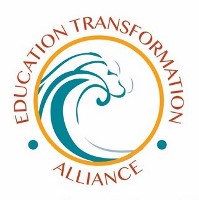 In 2012 educators representing a handful of these schools came together to create the Education Transformation Alliance (ETA). The ETA, a growing 501c3 nonprofit organization, now shares resources and organizes school fairs and other events to reach more families and let them know about all the great options out there. Alt Ed Austin, the family consulting service and online resource center that publishes this blog, works closely with the ETA and serves as a one-stop shop for parents interested in comparing the many educational options around Austin. Hopefully, more and more communities will catch on and follow this model of synergistic collaboration.
In 2012 educators representing a handful of these schools came together to create the Education Transformation Alliance (ETA). The ETA, a growing 501c3 nonprofit organization, now shares resources and organizes school fairs and other events to reach more families and let them know about all the great options out there. Alt Ed Austin, the family consulting service and online resource center that publishes this blog, works closely with the ETA and serves as a one-stop shop for parents interested in comparing the many educational options around Austin. Hopefully, more and more communities will catch on and follow this model of synergistic collaboration.
Ultimately, the education revolution is not about fixing the current system or finding/creating another system to replace it. It is about supporting the creation of a diverse range of options for families to choose from, while making those options accessible for families, whatever their economic circumstances may be. Every child is unique, every family is different; so why should we continue to pump billions of dollars into a homogenized, one-size-fits-all education for our future generations? It is time we recognize that in order to transform our world to a more just, sustainable, and peaceful place, we need to start by transforming education.
We’re doing just that at the Whole Life Learning Center, and you can be a part of it! Please consider supporting our work by contributing to our crowdfunding campaign. Watch the new video below to learn more about our unique programs, our expansion project, and how you can help.
Michael Carberry, M.S.


